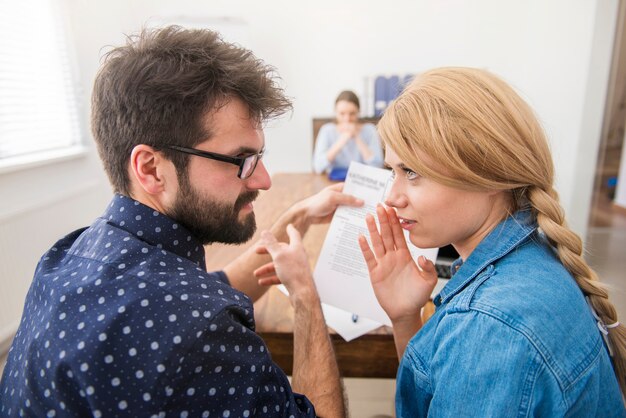
Sponsored article
In today’s competitive job market, mastering body language can be just as critical as perfecting your resume or rehearsing your answers. The subtle cues you give off nonverbally can make a strong impact on how you’re perceived during an interview. From the handshake upon arrival to the way you nod in agreement, these nonverbal signals can either reinforce or undermine what you’re saying. Understanding and effectively using body language can greatly influence the impressions you leave on potential employers.
Understanding the power of nonverbal communication is essential for anyone looking to make a strong first impression during an interview. While your words convey your skills and experience, your body language speaks volumes about your confidence, attitude, and sincerity. Nonverbal communication can influence interview outcomes more than you might think. From a firm handshake that exudes confidence to maintaining eye contact that establishes credibility, each gesture contributes to the overall impression you make. Key body language tips include sitting up straight to convey attentiveness, smiling to demonstrate a positive and approachable demeanor, and nodding occasionally to show engagement and understanding. These subtle cues can effectively complement your verbal responses and resonate positively with interviewers. Remember, interviews are not just about what you say; how you present yourself nonverbally can significantly sway the decision in your favor.
In an interview setting, the impact of body language is undeniable, as it often speaks louder than words. Confident gestures and proper posture can greatly influence an interview’s outcome, projecting assurance and reliability to potential employers. Key gestures to convey confidence include maintaining steady eye contact, offering a firm handshake, and using open hand movements to express enthusiasm and engagement. It’s equally important to be mindful of your posture. Proper posture communicates professionalism and attentiveness, while slouching might suggest disinterest or insecurity. Here are practical tips to enhance your interview body language:
By integrating these positive body movements and seated positions, you can create a strong, affirmative impression during your interview.
In interviews, facial expressions and eye contact play crucial roles in establishing a connection with the interviewer and demonstrating genuine engagement. A warm smile or a nod can convey agreement and enthusiasm, helping to create a rapport that could significantly influence interview success. Subtle yet effective, positive facial expressions communicate openness and a friendly attitude, which can make the interaction more comfortable for both parties. Equally critical is the art of maintaining appropriate eye contact. It signals confidence, attentiveness, and sincerity, reassuring the interviewer that you are interested and focused. While it is important to maintain eye contact, it should be natural and not overly intense to avoid discomfort. Balancing eye contact with thoughtful facial cues can beautifully enhance the back-and-forth of communication during the interview. Mastering these non-verbal cues can give you an edge, subtly reinforcing the impression that you are both competent and personable, thus contributing significantly to interview success.